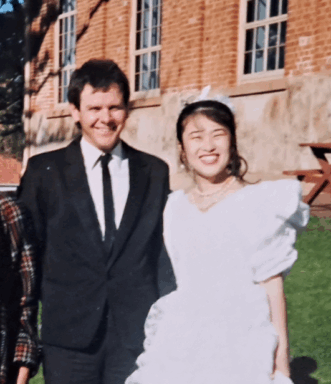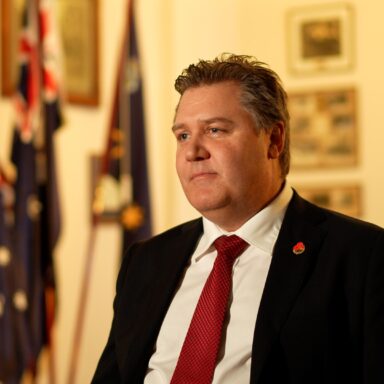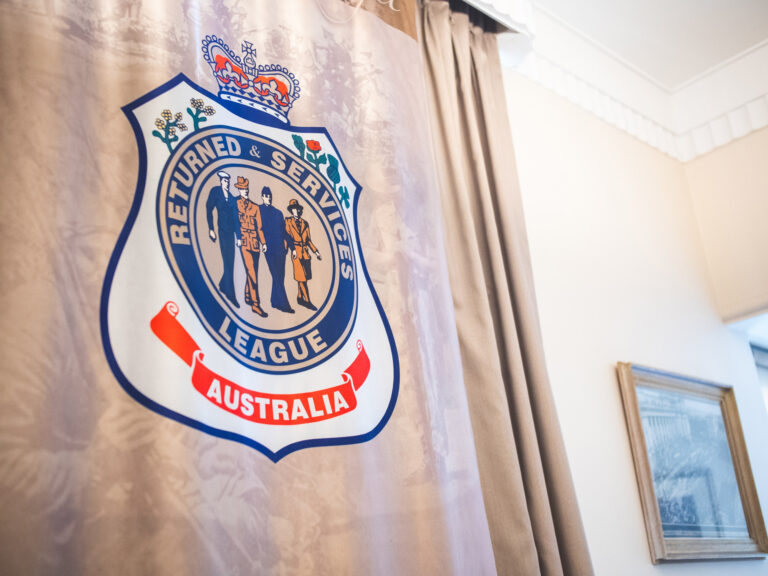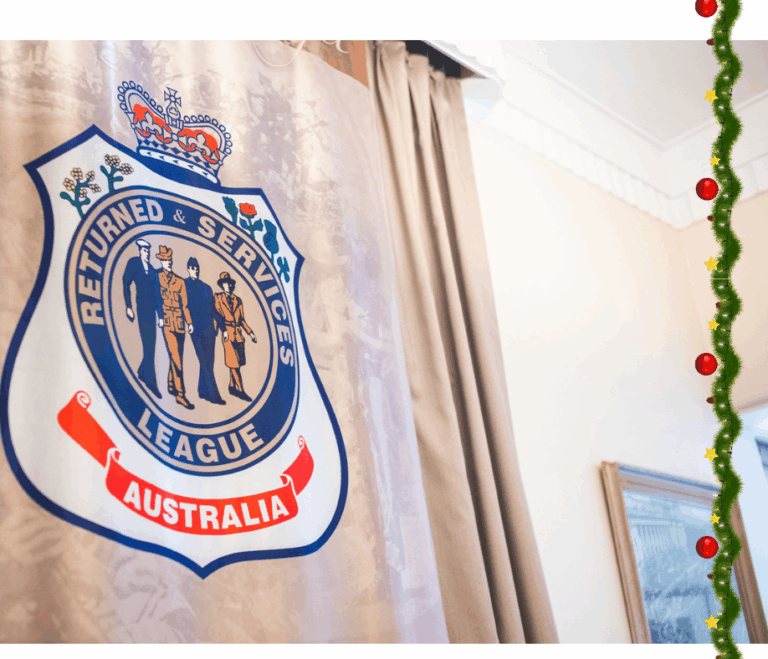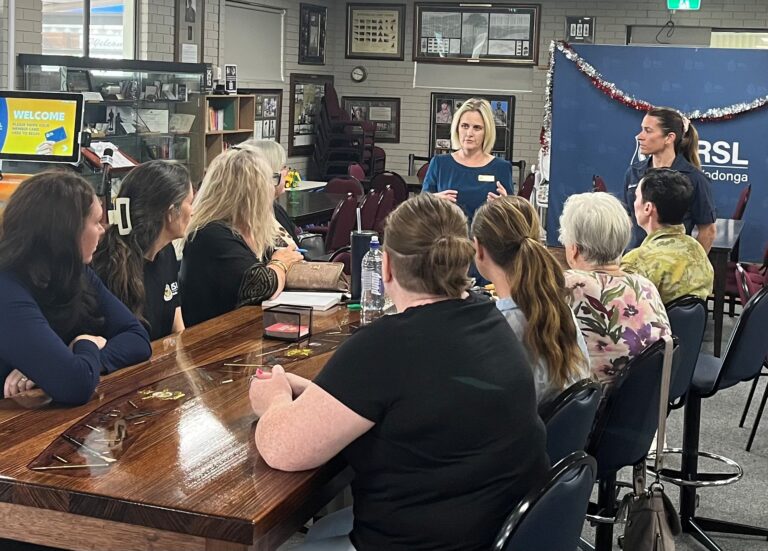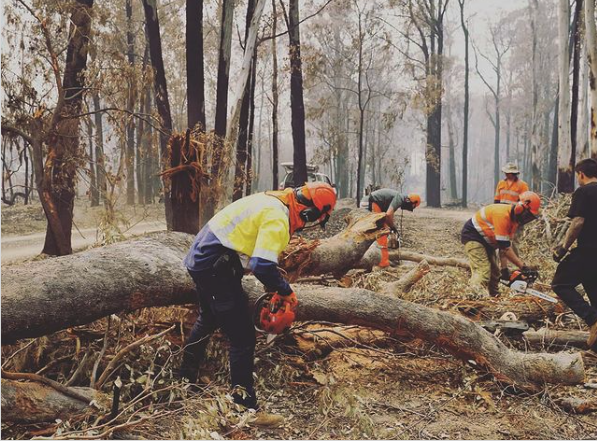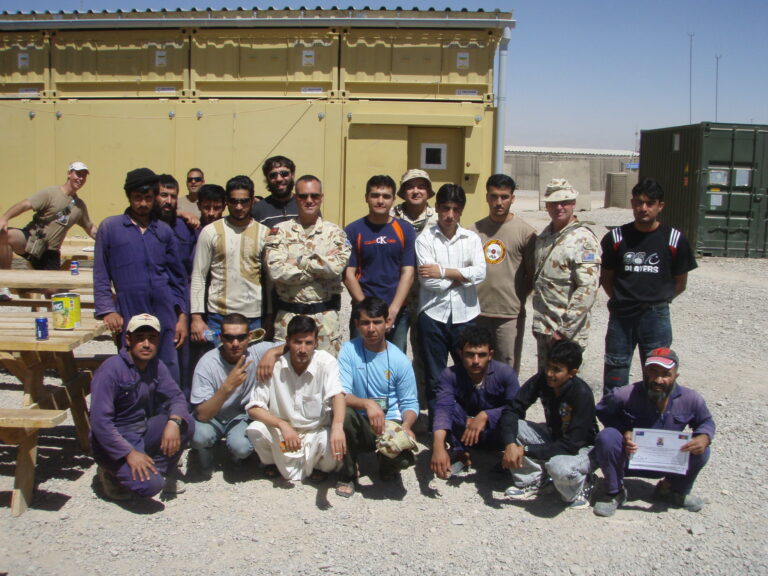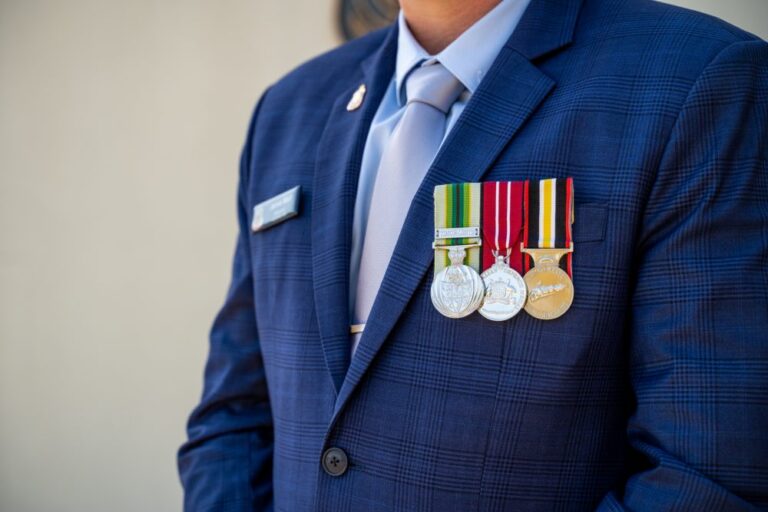The Unstoppable Alva Lewis of the RSL Victoria Poppy Appeal
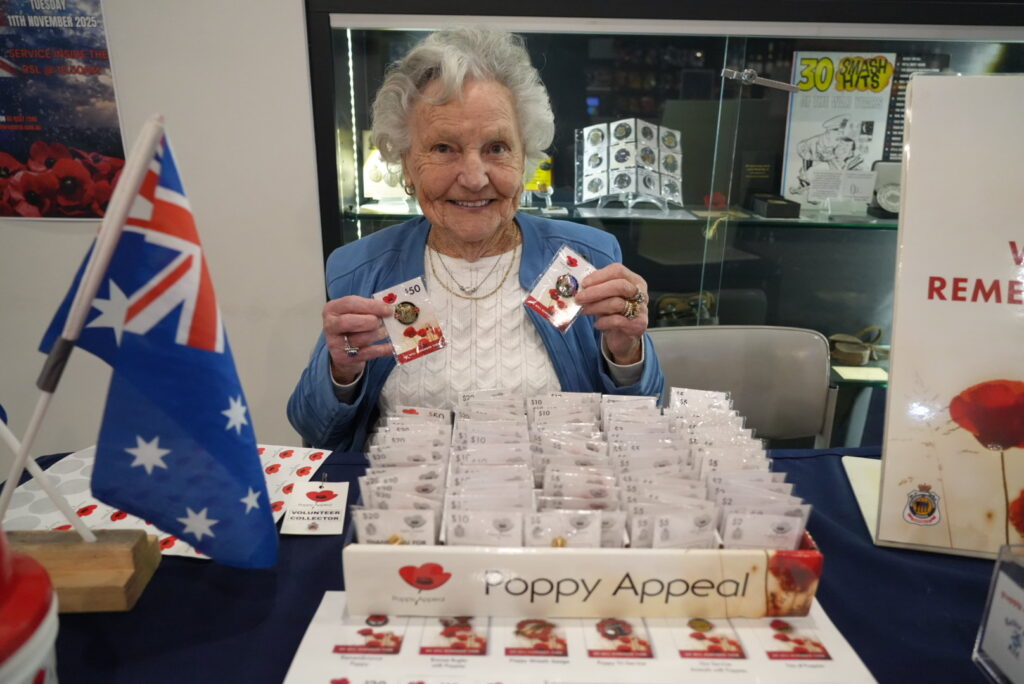
Alva Lewis has lived in her West Essendon home for seventy years. When she and her husband built the house, it was surrounded by farmland, with few roads and no sewage.”
“We got a war service loan,” Alva says. “We had four kids together and built our house in West Essendon. In those days it was surrounded by farmland.”
Alva has seen a community grow around her as she raised her children, new houses becoming old and then replaced one after another by units.
“We are just about the only house left in the street now,” Alva says. “It is still lovely place to live but the other houses have all become units.”
Alva’s husband died fifteen years ago, and two of her children have also passed. When COVID lockdowns came into effect it would have been easy for the isolation to hit her hard, but Alva knew that she always had someone to reach out to.
“Keilor East RSL was wonderful to me,” Alva said. “During COVID they came and did home repairs for me, changing the washers in my taps and things like that. More than that there was always someone to call on the phone if I felt like I needed to speak to someone. I just called the RSL.”
The sense of connectedness the RSL has given Alva has had since her husband died has meant the world to her. She has spent the last fifteen years volunteering for the RSL, partly in gratitude but also because of how much she enjoys the company of the people she meets there.
Making the transition from wife to widow was difficult for Alva. She still vividly remembers the day she met her husband on the 18th of June 1944, as the Second World War raged around the world. She was only 16 years old when she and a friend boarded a train to visit her aunt in Horsham and found all the seats taken up by a group of young RAAF servicemen.
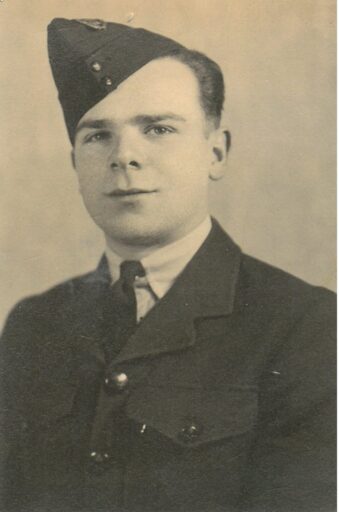
“They were very nice and very polite young men,” Alva remembers. “One of them stood up and offered me his seat.”
The act of gallantry did not benefit the young servicemen who offered his seat though. Instead, Alva got into a conversation with his friend, and fellow RAAF servicemen, who had remained seated.
“He was very reserved and shy,” Alva remembers. “But when we got to Horsham, he had the courage to ask me where I was staying, and he called my aunt to ask if it would be alright for him to come and pay me a visit.”
The reserved young man was Robert (Bob) Lewis, a Ballarat boy, who had enlisted in the air force less than two weeks after his birthday in February 1944, and was on his way to training in Nhill when Alva took the seat beside him on the train.
Theirs was the whirlwind romance of two teenagers caught up in the war. By the time he had finished training they were engaged to be married. Because Alva was only 16 their engagement was set for five years, when she turned 21. The wedding, of course, was also dependent on Bob returning home from the war.
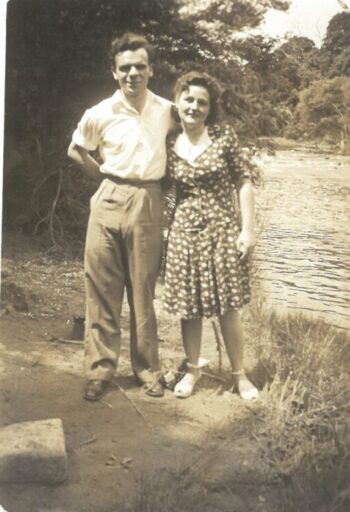
Bob’s initial training was in Nhill, followed by Lake Boga and then far away from Alva in New South Wales. He was training with the Air Armament and Gas School as an armourer but in the process, Alva says, he was exposed to mustard gas and other chemicals that would cause problems in the future.
When the training was over Bob was sent over to Morotai, now in Indonesia, but then recently liberated from Japanese control as the Allies prepared to retake the Philippines and Borneo.
“His main role was as an armourer,” Alva said. “He had to climb into the wings of the aircraft to install the bombs. No one could see him when he was doing this, so he had to have someone standing guard outside the plane to make sure no one got in and took off with him still inside the wings.”
Bob would see out the war in Morotai, arming allied planes as they launched attacks on Japanese forces from the island. He was still on the island when the Japanese surrendered and was present when the Commander-in-Chief of the Japanese Second Army officially surrendered to General Sir Thomas Blamey on the island on 9 September 1945. He was among the servicemen watching on in the background in official photos taken on the day.
Alva would have to wait a long time for Bob to return home from the war, while other Australians marched in welcome home ceremonies back in Melbourne Bob got stuck in Morotai, becoming one of the last Australians to leave the island, finally making it to Darwin in December of 1945.
He discharged from the air force in 1946 with a recommendation from the Air Force, strangely enough, that he would make a good jeweller. Robert would pick up this trade and become a jeweller for the rest of his life. He finally married Alva in 1949, five years to the day after they met on the Horsham train as teenagers.
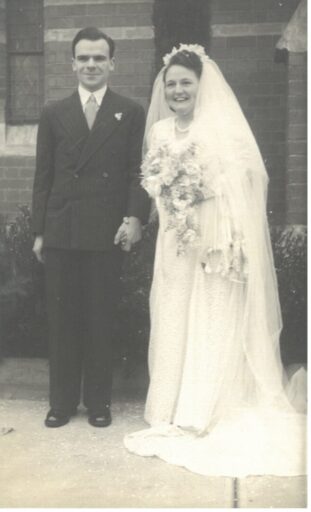
But Bob’s life in the air force came at a price. She estimates he had around 70 cancers removed during his life, with bowel cancer finally claiming his life in 2010. She blames some of the chemicals he was exposed to during the war for his health issues.
Despite these serious health concerns Bob refused to apply for a Gold card.
“He never wanted to apply despite his health issues,” Alva said. “He always said others deserved it more than he did.”
Eventually the RSL in Keilor East arranged for a doctor to visit Bob who immediately said he needed to receive a Gold card to get the treatment he needed.
“The doctor said it should have happened years ago,” Alva said. “But he never wanted to worry about things like that.”
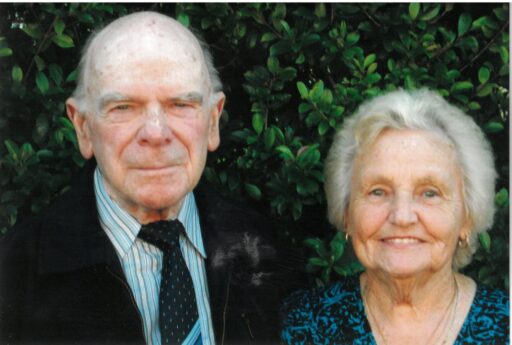
Despite his health issues Alva loved the life she lived with Bob. When he retired aged 60 from his jewellery business, they travelled the world and around Australia together. When Bob passed on her son Robert and daughter-in-law Irene with their friends Sid and Denise took over as her travelling companions, but it was at the RSL where she found the community that helped her adjust to life alone.
She became the barrel girl at the Keilor RSL bistro every Thursday night, drawing the winning envelope in their competitions. She joined exercises classes which she describes as very strenuous.
“I am the oldest in the class,” Alva laughs. “I am the oldest in everything nowadays.”
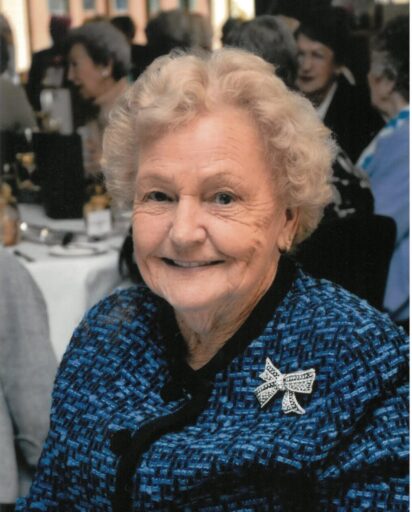
While the RSL has supported her in many ways, including clearing away a tree that fell on her house when the house next door was bulldozed to make way for more units, Alva would rather give help than receive it.
“The RSL offers to do my lawns for me, but I pay someone to do it, I would rather do that than rely on the charity while I still can,” she says.
But the highlight of Alva’s year is the poppy appeal in the lead up to Remembrance Day. She has been selling poppies in her local shopping centre every year for 15 years, raising thousands of dollars for RSL Victoria to support its charity work with veterans and their families.
“I love the people I meet selling poppies, the volunteers and people in the street – everyone is so lovely, always someone to talk to.”
She recently lost the sight in her left eye, but it has not slowed Alva down.
“I may be 97 but I can still do everything, including running the EFTPOS machine. Anyone who dedicates some time to volunteering with the RSL will find it broadens their mind; it is such a wonderful experience.”
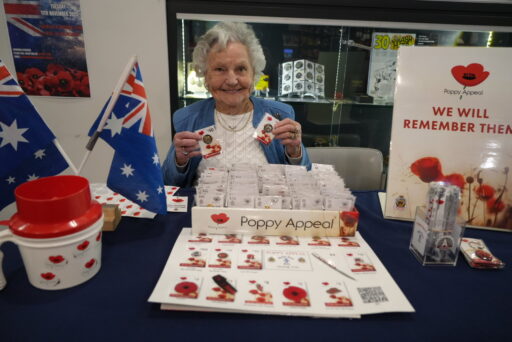
If you are looking for Alva after she has finished selling poppies, you can find her at the Dawn Service and Remembrance Day services every year where she lays a wreath on behalf of the war widows. The rest of the time you will most likely find her on one of the many bus trips the Keilor East RSL runs for its members.
“We have been all over the place, to see the Penguins down at Phillip Island, Ballarat, the talking tram in Bendigo. But wherever we go we wind up at the RSL for lunch.”
